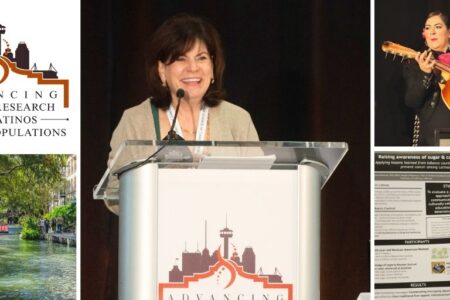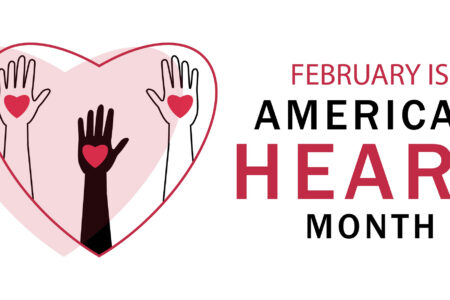Share On Social!
On a late October night, Linda Mota woke with a start.
While her mind should have been consumed with choosing a family Halloween costume, her thoughts were elsewhere.
“I was laying down and something inside of me told me, check your side,” she said.
What Linda felt wasn’t overwhelming, but it was clear there was a small lump there, resembling the shape of a little ball.
She initially dismissed what she found, but her intuition continued to scream at her that something was amiss.
“Something inside of me told me, ‘No. you need to get checked, you need to get checked,’” she told herself.
It turned out she had breast cancer.
Linda Mota and Her Startling Breast Cancer Diagnosis and Treatment
Linda was diagnosed with breast cancer in the throes of the COVID-19 pandemic via ultrasound followed by a biopsy.
To make matters worse, the cancer had already reached stage 3.
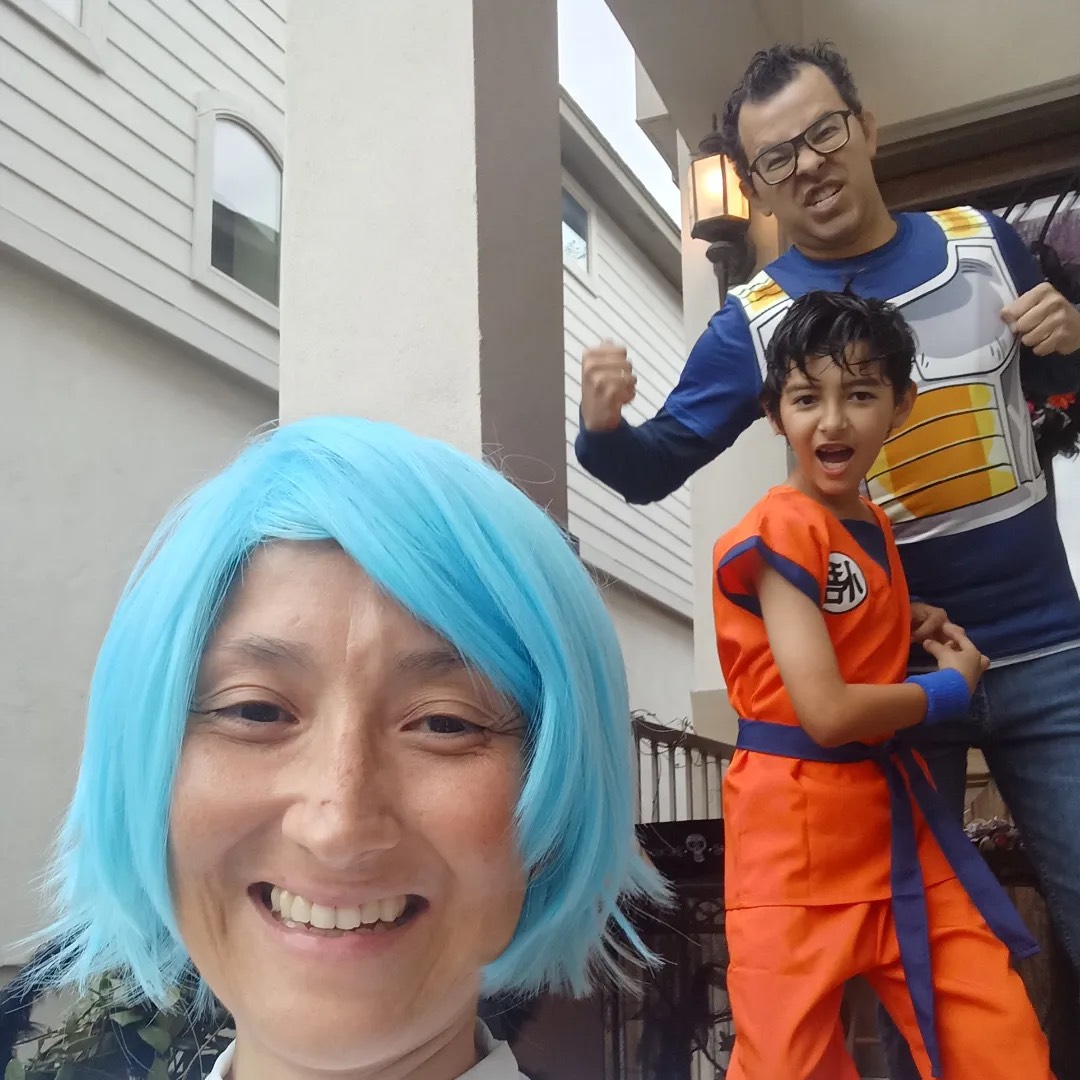 Stage 3 breast cancer is categorized by the spread of cancer beyond the breast and into nearby lymph nodes, according to the National Breast Cancer Foundation.
Stage 3 breast cancer is categorized by the spread of cancer beyond the breast and into nearby lymph nodes, according to the National Breast Cancer Foundation.
There are three different severities of stage 3 breast cancer, depending on the spread of the disease.
Linda’s cancer had spread to her lymph nodes, and she ended up having 20 of them removed.
This type of cancer had an 80–86% chance 5-year survival rate and would need a rigorous course of treatment.
Due to reasons that align with the non-medical drivers of health, such as lack of insurance, access to transportation, fear and distrust of medicine, many Latinos and other people go undiagnosed until cancer has reached a more advanced stage.
Treatment for advanced stages of cancer is usually more expensive and more invasive than when caught early on.
Linda’s treatment consisted of six rounds of chemotherapy, several courses of immunotherapy, radiation, and a mastectomy.
But treatment worked and Linda was declared cancer-free in June 2023.
Linda Mota and the Importance of Getting Checked for Breast Cancer
Linda credits getting checked out when she did with her survival.
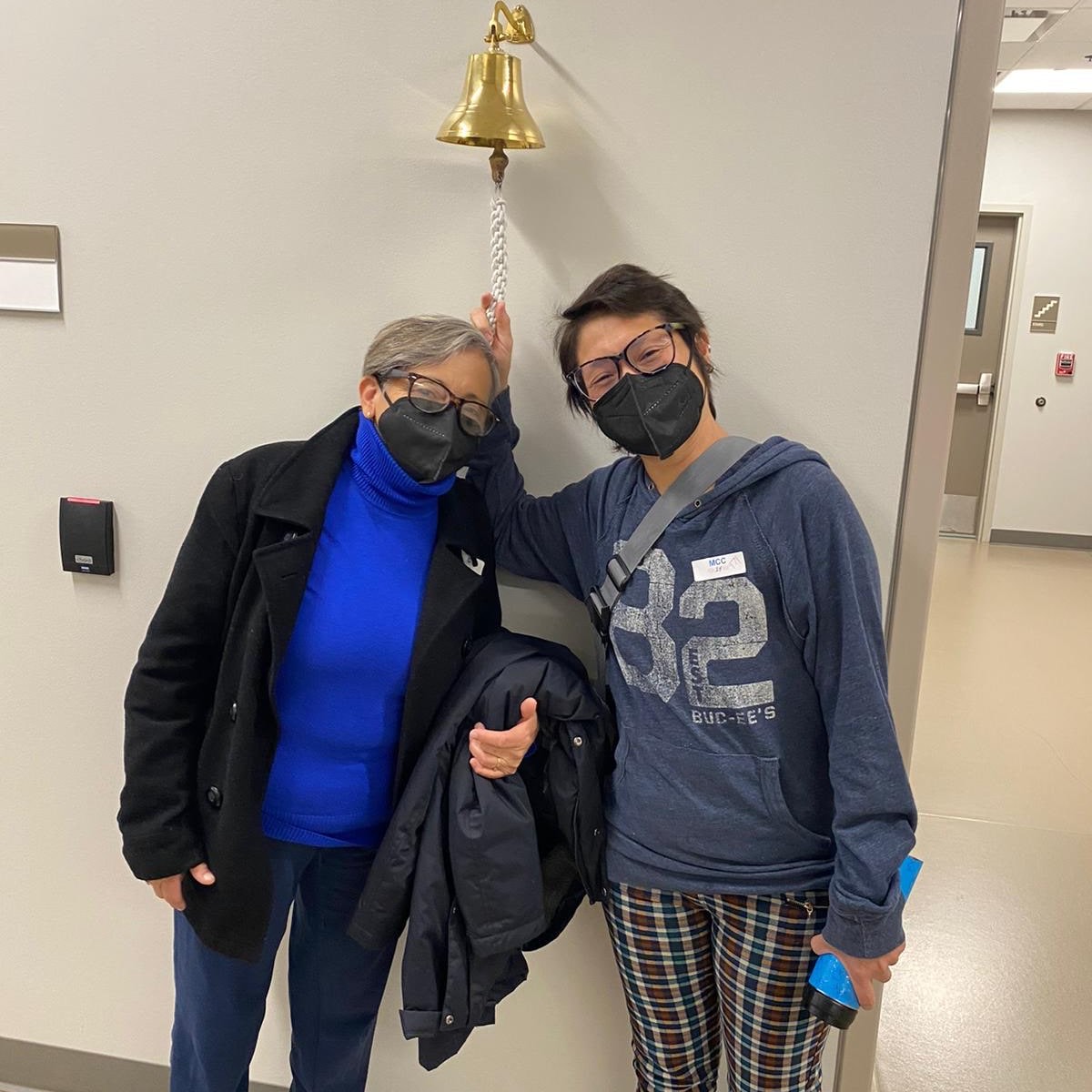
“Getting checked is the whole reason why I’m here,” Linda said. “You don’t know what point you’re going to start feeling symptoms and I was pretty healthy.”
Just a few months prior to her diagnosis, she went for her yearly exam. Her gynecologist reminded her that she would need a mammogram the following year when she turned 40.
While she was ready to receive it early, she was told she’d have to wait the following year.
Breast cancer is a disease that is affecting women, especially Latina women, at a much younger age, underscoring the need for preventative medicine sooner.
“It was very important for me to get checked out as early as possible, especially if you’re a young woman, younger than your 40s, because those kinds of cancers tend to be very aggressive,” she explained.
At the time, Linda had no symptoms of cancer, except for the lump, so following her intuition made all the difference.
“When I first got the news it was stage 3 it was very scary because from stage 3 comes stage 4 and it can start going really, really quickly … and I’m alive, even at a stage 3 I was able to get treatment right away and it made all the difference of getting checked as soon as I found something.”
Linda Mota and Navigating Cancer During a Pandemic
It’s difficult going through cancer treatment, but even more difficult to do during an unprecedented global health crisis.
Linda was blessed to have a family that supported her through her diagnosis and subsequent treatments.
However, her otherwise supportive family could not join her for treatments or appointments due to physical distancing.
“I couldn’t even have somebody there with me when I first heard the news that it was cancer and it was very scary,” she recalled. “I remember going to the parking lot and just breaking down and just crying because I was by myself, and we were in the middle of a pandemic.”
The toughest part about navigating cancer during the pandemic was that she had to be more careful with her health because she was immunocompromised.
That meant wearing a mask all the time.
“You had to sit there for a while. My treatments were like eight hours, sometimes six hours, depending on the treatment. You had to be there, in the room [with a mask on] and you had to eat with your mask on. There were no vaccines at that moment, so they were super cautious of making sure that you don’t get sick,” Linda said.
But it was hardest on her then 7-year-old son, who was stuck at home because his mom couldn’t get sick.
“It was a very difficult time, not only for myself, but it was also for my family. It took a big, emotional toll on them,” she said.
Linda Mota and Cancer’s Lasting Impact
While the bell has already been rung for Linda, her journey is far from over.
Like many other survivors, Linda is still feeling the long-term physical and emotional effects of cancer and the treatment she received.
“I keep saying to myself, I’m so lucky that I that I am here. That not everybody gets to be here, but it is a struggle because there’s a lot of things that change in your life,” Linda said.
Physically, Linda has to take a daily pill to prevent the cancer from returning.
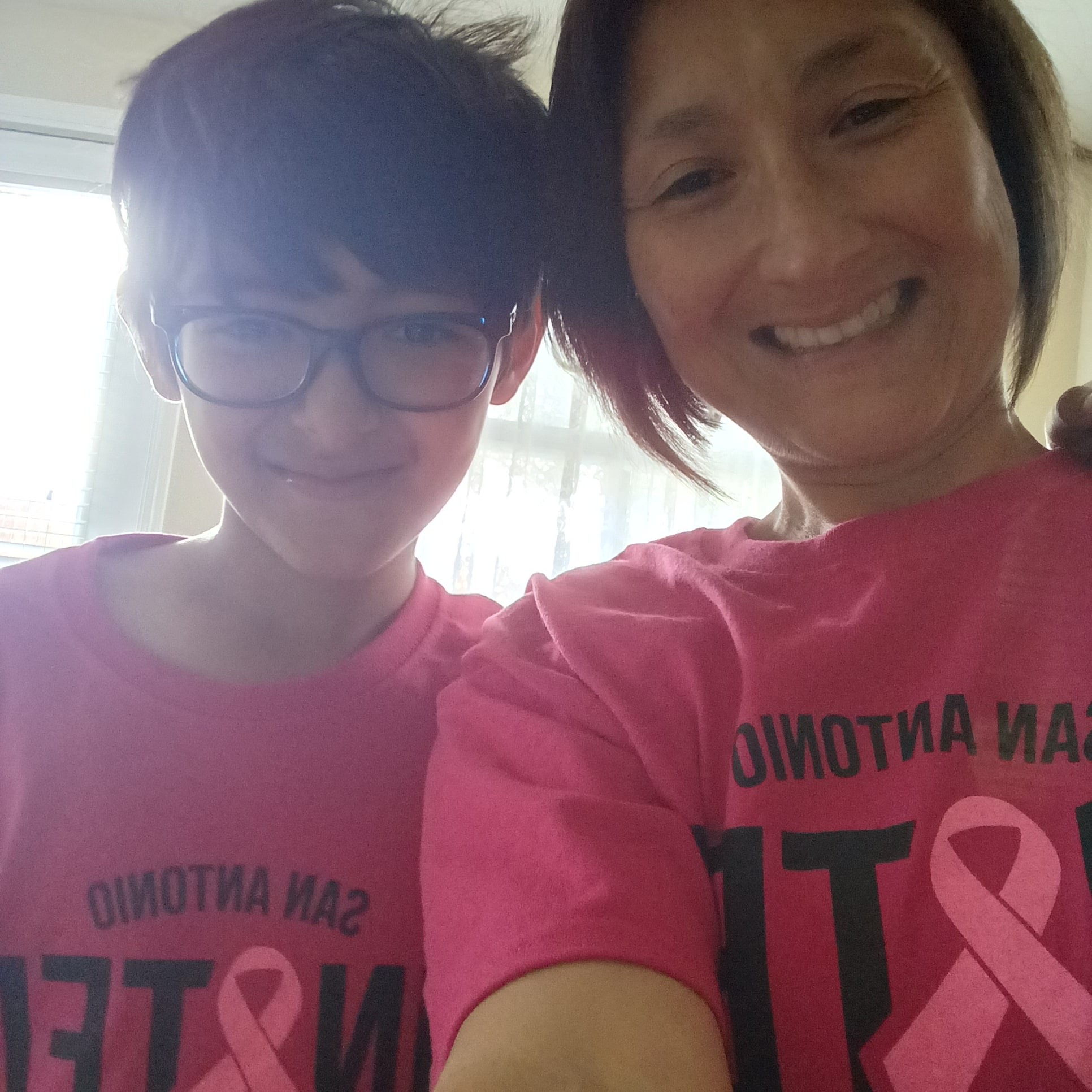
She’s also dealing with the fact that her hair never fully grew back, which can take a hit on one’s self-esteem.
It’s been more difficult to manage as she ages.
One of the side effects from treatment has been that she’s gone into early menopause.
“Menopause is already difficult enough for women, so just getting to experience that at an earlier age has been difficult and special,” she laughed.
What’s more, Linda cannot take any type of hormone replacement therapy to manage her menopause symptoms.
“I feel like my body is not as strong as it used to, but just the fact that I’m alive and that I get to see my son grow up, that’s just a gift to me,” she said. “Maybe I cannot play soccer with him that much or wrestle with him that much anymore, but at least I get to see him play. So, I’m very fortunate.”
Having to deal with the emotional fallout from cancer has been difficult for Linda and her family, who are still coming to grips with what happened.
“You try to have your family around you, and they try to be strong for you. They try to be very compassionate and kind. But now that I talk to my brother, my sister, my mom, everybody around me … they tell me that they were so scared and falling apart on their own, but they just had to be strong to hear me complain or to be there with me,” she said.
However, her diagnosis hit her son the hardest.
After being diagnosed when he was at an impressionable age, her son felt he had to be strong for his mom, so he suppressed a lot of his fear of losing her, according to Linda.
Linda recalled a particular moment while watching Guardians of the Galaxy with her son.
In a pivotal scene at the beginning of the film the main character, as a boy, loses his mother to cancer.
Watching the scene brought up emotions that had long been buried.
“At that moment, my son was just caught off guard and by the end of the movie he just broke down and started crying for like two hours he and nothing could stop it,” she said. “[After that] he started having a lot of episodes where he would just break down and cry so that’s why we’re like … he needs to process all of this.”
Her son is now in therapy to deal with the trauma from his mom’s cancer.
However, some invisible wounds take much longer to heal.
Linda Mota and Participation in Cancer Research
Linda is extremely grateful to call herself a survivor.
She pays it forward and participates in research studies and clinical trials.

“I think that if you were fortunate enough to call yourself a cancer survivor, it’s very important that you try to participate in as many studies as possible,” she said. “To make sure that you bring that awareness to the population because we know they are a very vulnerable population that maybe don’t get the information or the exposure of how to navigate this crazy path that is cancer.”
Even with a background in science, she understands how important these studies are in helping others.
“I went through this and now I can help out somebody,” she said. “This is my story, and hopefully whatever I say, is going to help somebody along the way. You’re not alone. There’s a lot of us that have walked through hard roads.”
One of the studies Linda participates in is the Avanzando Caminos Hispanic/Latino Cancer Survivorship Study at UT Health San Antonio.
The Avanzando Caminos study, aims to improve the Latino cancer survivorship journey by interviewing survivors about their personal experience with cancer.
By examining areas such as the journeys of cancer survivors, the team is looking to unpack the social, behavioral, mental, biological, and other influences on post-cancer life.
In analyzing these factors, the study team hopes that they can identify strategies and interventions that may help ease the burden caused by these influences.
For Linda, these studies are personal.
“You contribute to studies and participate in those studies because not only are you helping somebody out, but you’re also helping you heal in your path.
Share Your Cancer Story with Avanzando Caminos
The Avanzando Caminos research study at UT Health San Antonio is looking to enroll 1,500 Hispanic/Latino cancer survivors in South Texas.
Participants must have completed primary cancer treatment for breast, lung, liver, stomach, colorectal, kidney, prostate, and uterine cervical cancers in the last 10 years.
The study is comprised of seven study visits over five years, which consists of assessment interviews, and some blood draws.
Volunteers are eligible to receive $50 per visit.
To inquire about volunteering for Avanzando Caminos, please contact a member of the study team at the Institute for Health Promotion Research at UT Health San Antonio at 210-562-6514 or email caminos@uthscsa.edu.
You can also visit the Avanzando Caminos website in English or Spanish for more information or fill out a short eligibility survey and a member of the study team will be in touch.
By The Numbers
142
Percent
Expected rise in Latino cancer cases in coming years
This success story was produced by Salud America! with support from the Robert Wood Johnson Foundation.
The stories are intended for educational and informative purposes. References to specific policymakers, individuals, schools, policies, or companies have been included solely to advance these purposes and do not constitute an endorsement, sponsorship, or recommendation. Stories are based on and told by real community members and are the opinions and views of the individuals whose stories are told. Organization and activities described were not supported by Salud America! or the Robert Wood Johnson Foundation and do not necessarily represent the views of Salud America! or the Robert Wood Johnson Foundation.

